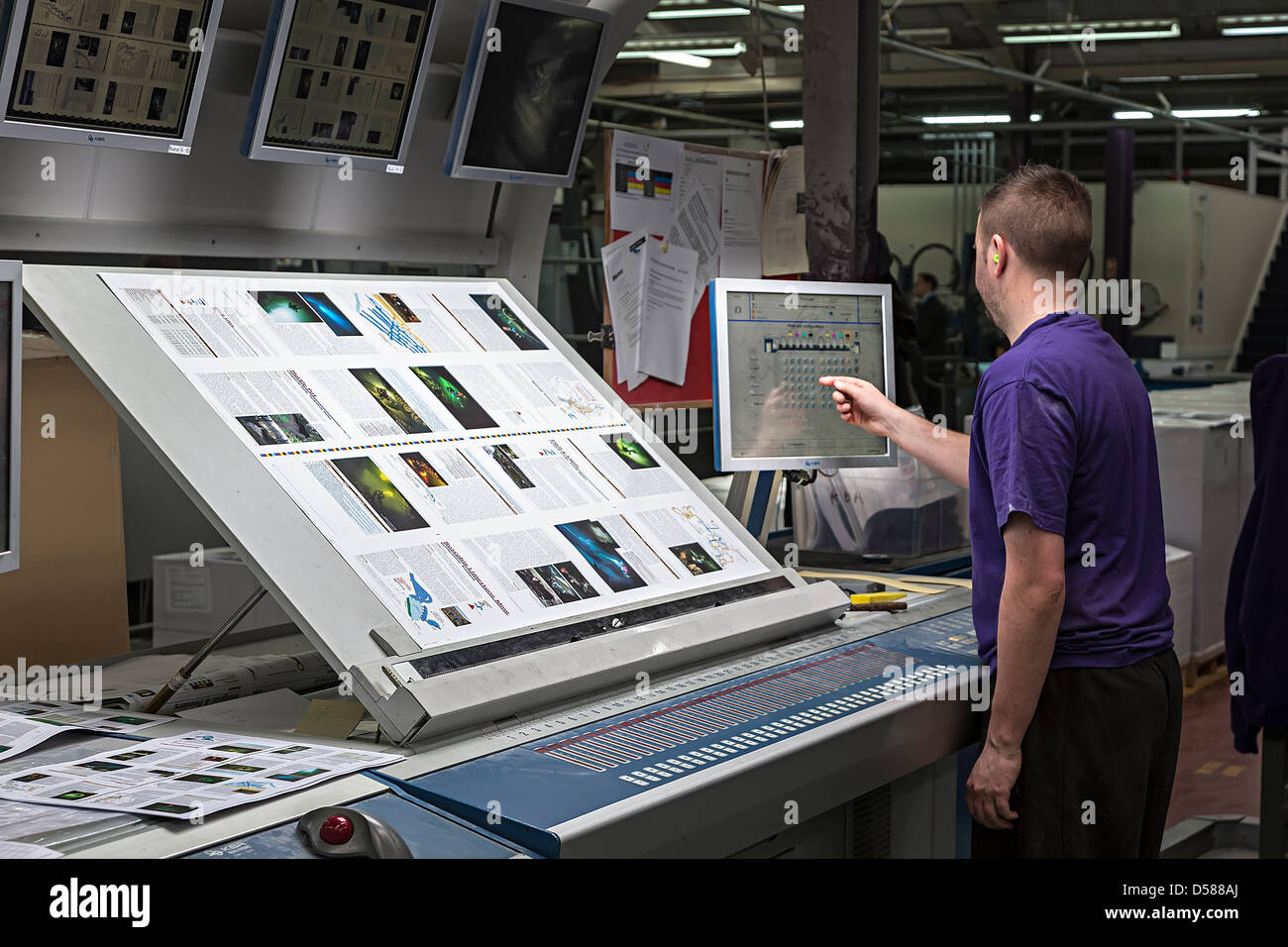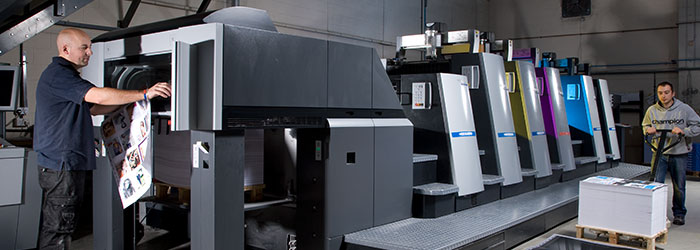litho printing Techniques Used by Top Print Shops
litho printing Techniques Used by Top Print Shops
Blog Article
A Comprehensive Overview to Comprehending Litho Printing Methods
The globe of litho printing, a technique originating from the late 18th century, is a remarkable mix of background, development, scientific research and art. This comprehensive guide will unwind the intricacies of this printing technique, from the structure of litho inks to the challenges encountered in modern-day applications. As we venture into the complexities of lithography, the value of automation and sustainability in guaranteeing its future significance becomes increasingly clear. Remain with us as we trip right into the exciting realm of litho printing.
The Historic Advancement of Litho Printing
The historic trajectory of litho printing, a pivotal advancement in the realm of communication, is a captivating story of human ingenuity. The process developed with the arrival of the rotating press, which greatly boosted performance. Each phase of litho printing's development showcases mankind's unrelenting pursuit of effectiveness and top quality in visual interaction.
Translating the Scientific Research Behind Litho Printing Inks
Relocating ahead in the expedition of litho printing methods, the emphasis currently changes to the scientific research behind litho printing inks. The structure of these inks, their drying out procedure, and shade mixing techniques create the backbone of this complex art type. Recognizing these aspects is crucial to understanding the craft and accomplishing the desired print outcomes.
Structure of Litho Inks
In lithographic printing, the fundamental duty of litho inks can not be overemphasized. The composition of litho inks varies depending on its function, but generally, they include two primary elements - automobiles and pigments. Pigments, the color-providing components, are carefully ground fragments suspended in the car, a liquid that brings the pigment onto the printing surface area. The car is a complicated combination of oils, solvents, and resins, which influence the ink's drying time, attachment, and gloss. Furthermore, different ingredients exist to enhance particular residential properties like flow, drying, and resistance to ecological impacts. Each part plays a critical part in the last print's high quality, making the exact solution of litho inks an elaborate science.
Ink Drying Process
From the composition of litho inks, focus turns to the interesting process of ink drying. The drying out procedure is critical, as it impacts the final print's high quality and durability. Two key approaches are used in litho printing: oxidative drying and absorption. Oxidative drying out entails the ink reacting with oxygen in the air to create a hard, dry film. This method gives a resilient coating, but can be slower contrasted to absorption. Absorption, on the various other hand, includes the ink seeping right into the paper fibers, which is a much faster process yet can result in much less lively shades. The option in between these approaches depends on variables such as print speed requirements, the paper kind utilized, and the desired coating.
Color Mixing Techniques
While the drying out process plays a key duty in litho printing, the scientific research of color mixing techniques holds equivalent value. This is an intricate process that entails the mindful mixing of primaries: cyan, magenta, and yellow, in differing proportions to accomplish a large variety of colors. The enhancement of black ink, called 'vital', aids in controling the strength and depth of the colors. The science behind litho printing inks additionally considers the transparency of the ink, which affects exactly how shades overlay and mix. To attain a reliable color mix, print professionals should also recognize the complexities of ink behavior, color concept, and the physical residential or commercial properties of the substrate on which the ink is used.
The Art and Design Components in Litho Printing
Litho printing breathes life into art and layout via its one-of-a-kind components. The procedure involves creating a picture on a lithographic limestone plate or steel plate with a smooth surface. The photo is after that published onto a tool, generally paper, by transferring the ink from the plate. What sets litho printing apart is its ability to replicate detailed designs with high fidelity, making the outcome almost similar to the original art work. This is accomplished with making use of different line techniques such as cross-hatching, stippling, and hatching, which enable an array of tonal effects. Additionally, litho printing fits a selection of colors, making it possible for artists to create vibrant and lively prints. This combination of accuracy and adaptability makes litho printing a favored choice for several artists and developers.
Modern Applications of Litho Printing Methods
Litho printing strategies have actually discovered substantial use in the modern-day business market. Its impact and relevance proceed to expand with the advent of new technologies and innovations in the area. This area will certainly discover these contemporary applications and the transformative role they play in the printing industry.
Business Litho Printing Utilizes
Litho printing stays an essential part of the business market. High-volume printing tasks, such as the production of have a peek at this website books, newspapers, and product packaging, rely on litho printing for its ability to supply remarkable image quality and expense efficiency. Litho printing also offers a broad shade spectrum, exceptional to that of digital printing.
Developments in Litho Printing
Pushing the boundaries of typical techniques, modern-day advancements have fueled a host of technologies in litho printing. These breakthroughs have not only boosted the quality and efficiency of litho prints yet likewise increased its application scope. One famous growth is digital litho printing, which combines the merits of digital innovation with litho's top quality output. This crossbreed model uses faster configuration times, minimized waste, and allows on-demand printing. One more noteworthy improvement is the introduction of eco pleasant inks. These inks, made from vegetable or soy-based remedies, have considerably decreased the sector's ecological impact. litho printing. Learn More In addition, the development of advanced plate modern technology has structured the printing process, resulting in sharper pictures and enhanced color fidelity. These technologies emphasize the long-lasting relevance of litho printing in the modern-day world.
Exploring the Refine of Litho Printing: Action by Action

Difficulties and Solutions in Contemporary Litho Printing

Regardless of the accuracy and practice that litho printing proudly upholds, it is not without its set of modern challenges. The most widespread problems consist of the high initial setup cost, trouble in printing variable data, and environmental problems due to chemical use. However, solutions are emerging as modern technology develops. Digital litho printing enables for affordable short runs and simple modification, attending to the concern of variable information. Environmentally-friendly inks and safer plate-making processes mitigate ecological problems. Additionally, improvements in automation have actually decreased labor expenses, even more democratizing the lithography procedure. Therefore, while there are challenges, the litho printing sector is proactively adjusting to fulfill them head-on, guaranteeing its significance in the future.
Final thought
In verdict, litho printing, with its abundant background and clinical complexities, holds a significant location in the print market. The future of litho printing hinges on its capacity to adjust to these transforming needs, attesting its enduring value in an evolving market.

Report this page